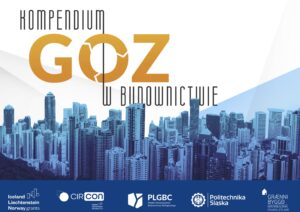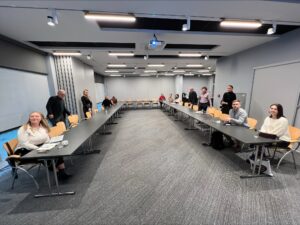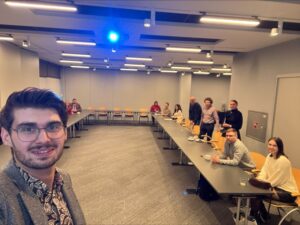Information meeting “Circular economy in construction”
On November 22, 2023, SPCleantech took part in the information meeting “Circular economy in construction” organized by the cluster partner, the Polish Association of Ecological Construction | Polish Green Building Council (PLGBC) implemented as part of the CIRCON project “Circular economy in construction: designing circular buildings”, which benefited from funding received from Iceland, Liechtenstein and Norway under the Financial Mechanism of the European Economic Area (EEA FM) and the state budget . The aim of the project is to strengthen the implementation of the circular economy in the construction sector.
Program of the meeting:
- Introduction to the circular economy
- Circular design
- Circular buildings and circularity indicators
- The role of materials in circular construction
- Case studies
According to UN estimates, the number of people in the world has exceeded 8 billion, which means that there are three times more of us than in the 1950s, and forecasts predict that the population will reach 10 billion no later than 2060. Ensuring appropriate living conditions for such a huge population is a challenge. Broadly understood, the economy is a system of meeting the diverse needs of society expressed by a sense of security, a guarantee of access to food, clean air, medical care, education, as well as jobs and living space. The current linear economic model, on which over 90% of the industry is still based, simply does not work. Today we know that access to primary raw materials is limited, critical raw materials are running out, we do not manage the generated waste, we waste energy on their disposal instead of implementing recycling or reuse activities. The above-mentioned population growth and its growing needs have led to a situation in which nature cannot keep up with the regeneration and renewal of resources.
The solution to this situation is the urgent implementation of an alternative model, the circular economy. Taking alternative actions to minimize the consumption of raw materials, the amount of waste and returning it to economic processes is an opportunity for the ecosystem. The idea of a circular economy appeared already in the 1960s, evolving over the years, becoming a global economic model implemented into strategies and policies not only in Europe, but all over the world.
In the publication entitled “Circular economy in policy and scientific research” [20] the authors draw attention to the conditions of the Polish economy, which is characterized by high material intensity and very low eco-innovation compared to EU countries, thus emphasizing the need to define circular economy as an economic development strategy with appropriate instruments legal and economic as well as indicators monitoring both the progress of its implementation and the use of the latest IT solutions.





